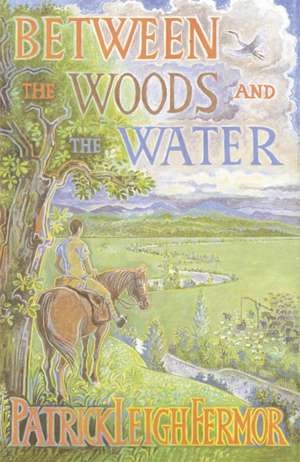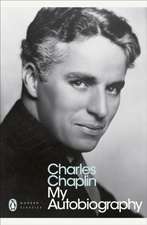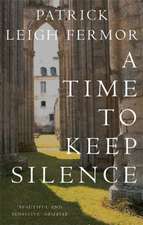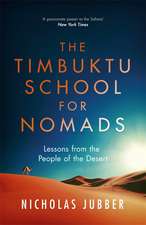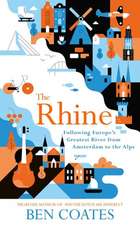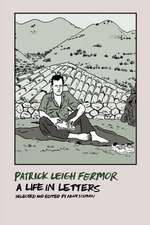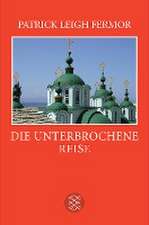Between the Woods and the Water
Autor Patrick Leigh Fermoren Limba Engleză Paperback – 8 apr 2004
The second great Patrick Leigh Fermor classic - and the sequel to A Time of Gifts - reissued in paperback with an Introduction by Jan Morris
| Toate formatele și edițiile | Preț | Express |
|---|---|---|
| Paperback (2) | 52.73 lei 3-5 săpt. | +25.78 lei 7-13 zile |
| HODDER AND STOUGHTON LTD – 8 apr 2004 | 52.73 lei 3-5 săpt. | +25.78 lei 7-13 zile |
| NEW YORK REVIEW OF BOOKS – 30 sep 2005 | 103.29 lei 3-5 săpt. |
Preț: 52.73 lei
Preț vechi: 69.57 lei
-24% Nou
10.09€ • 10.50$ • 8.45£
Carte disponibilă
Livrare economică 22 februarie-08 martie
Livrare express 08-14 februarie pentru 35.77 lei
Specificații
ISBN-10: 0719566967
Pagini: 304
Ilustrații: frontispiece and map
Dimensiuni: 128 x 196 x 24 mm
Greutate: 0.22 kg
Editura: HODDER AND STOUGHTON LTD
Colecția John Murray Press
Locul publicării:United Kingdom
Notă biografică
In December 1933, at the age of eighteen, Patrick Leigh Fermor (1915-2011) walked across Europe, reaching Constantinople in early 1935. He travelled on into Greece, where in Athens he met Balasha Cantacuzene, with whom he lived - mostly in Rumania - until the outbreak of war. Serving in occupied Crete, he led a successful operation to kidnap a German general, for which he won the DSO. After the war he began writing, and travelled extensively round Greece with Joan Eyres Monsell whom he later married. Towards the end of his life he wrote the first two books about his early trans-European odyssey, A Time of Gifts and Between the Woods and the Water. He planned a third, unfinished at the time of his death in 2011, which has since been edited by Colin Thubron and Artemis Cooper and published as The Broken Road.
Recenzii
"Mr. Fermor…is a peerless companion, unbound by timetable or convention, relentless in his high spirits and curiosity." — The New York Times
"We are aware at every step that his adventure can never be duplicated: only this extraordinary person at this pivotal time could have experienced and recorded many of these sights. Distant lightening from events in Germany weirdly illuminates the trail of this free spirit." — The New York Times
"The young Fermor appears to have been as delightful a traveling companion as the much older Fermor a raconteur." — The Houston Chronicle
"[A Time of Gifts, Between the Woods and the Water] are absolutely delightful volumes, both for those who want to better understand what was lost in the violence of Europe’s 20th-century divisions and for those who appreciate the beauty and thrill of travel writing at its best." — The Houston Chronicle
"Leigh Fermor is recognizably that figure many writers of the past century have yearned to be, the man of action." — The Guardian
"He was, and remains, an Englishman, with so much living to his credit that the lives conducted by the rest of us seem barely sentient-pinched and paltry things, laughably provincial in their scope, and no more fruitful than sleepwalks. We fret about our kids’ S.A.T. scores, whereas this man, when he was barely more than a kid himself, shouldered a rucksack and walked from Rotterdam to Istanbul." — Anthony Lane, The New Yorker
“Even more magical...through Hungary, its lost province of Transylvania, and into Romania...sampling the tail end of a languid, urbane and anglophile way of life that would soon be swept away forever.” —Jeremy Lewis, Literary Review
“In these two volumes of extraordinary lyrical beauty and discursive, staggering erudition, Leigh Fermor recounted his first great excursion... They’re partially about an older author’s encounter with his young self, but they’re mostly an evocation of a lost Mitteleuropa of wild horses and dark forests, of ancient synagogues and vivacious Jewish coffeehouses, of Hussars and Uhlans, and of high-spirited and deeply eccentric patricians with vast libraries (such as the Transylvanian count who was a famous entomologist specializing in Far Eastern moths and who spoke perfect English, though with a heavy Scottish accent, thanks to his Highland nanny). These books amply display Leigh Fermor’s keen eye and preternatural ear for languages, but what sets them apart, besides the utterly engagin persona of their narrator, is his historical imagination and intricate sense of historical linkage... Few writers are as alive to the persistence of the past (he’s ever alert to the historical forces that account for the shifts in custom, language, architecture, and costume that he discerns), and I’ve read none who are so sensitive to the layers of invasion that define the part of Europe he depicts here. The unusual vantage point of these books lends them great pregnancy, for we and the author know what the youthful Leigh Fermor cannot: that the war will tear the scenery and shatter the buildings he evokes; that German and Soviet occupation will uproot the beguiling world of those Tolstoyan nobles; and that in fact very few people who became his friends on this marvelous and sunny journey will survive the coming catastrophe.” -- Benjamin Schwartz, The Atlantic
"This is a glorious feast, the account of a walk in 1934 from the Hook of Holland to what was then Constantinople. The 18-year-old Fermor began by sleeping in barns but, after meeting some landowners early on, got occasional introductions to castles. So he experienced life from both sides, and with all the senses, absorbing everything: flora and fauna, art and architecture, geography, clothing, music, foods, religions, languages. Writing the book decades after the fact, in a baroque style that is always rigorous, never flowery, he was able to inject historical depth while still retaining the feeling of boyish enthusiasm and boundless curiosity. This is the first of a still uncompleted trilogy; the second volume, Between the Woods and the Water, takes him through Hungary and Romania; together they capture better than any books I know the remedial, intoxicating joy of travel." — Thomas Swick, South Florida Sun-Sentinel
“Recovers the innocence and the excitement of youth, when everything was possible and the world seemed luminescent with promise. ...Even more magical...through Hungary, its lost province of Transylvania, and into Romania... sampling the tail end of a languid, urbane and anglophile way of life that would soon be swept away forever.” —Jeremy Lewis, Literary Review
“A book so good you resent finishing it.” —Norman Stone
"The greatest of living travel writers…an amazingly complex and subtle evocation of a place that is no more." — Jan Morris
Praise for Patrick Leigh Fermor:
"One of the greatest travel writers of all time”ߝThe Sunday Times
“A unique mixture of hero, historian, traveler and writer; the last and the greatest of a generation whose like we won't see again.”ߝGeographical
“The finest traveling companion we could ever have . . . His head is stocked with enough cultural lore and poetic fancy to make every league an adventure.” ߝEvening Standard
If all Europe were laid waste tomorrow, one might do worse than attempt to recreate it, or at least to preserve some sense of historical splendor and variety, by immersing oneself in the travel books of Patrick Leigh Fermor.”—Ben Downing, The Paris Review
